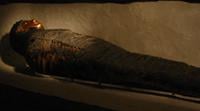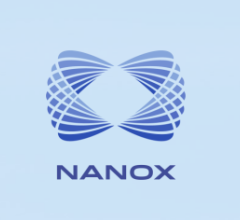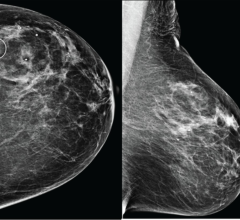
July 13, 2011 – By providing a mobile computed tomography (CT) scan unit free of charge to Chicago's The Field Museum for a series of mummy scans this month, Genesis Medical Imaging Inc. has helped discover ancient secrets and opened the door to new mysteries.
Field scientists were surprised to find only a skull and legs inside the wrappings of one Egyptian mummy and the baskets of four Peruvian specimens simply empty, with no mummies inside. Yet it was all instructive for the museum's researchers, who after several days of scanning objects more than 2,000 years old are more certain of what their collection actually holds.
Several of the museum's oldest and most delicate specimens were moved with painstaking care last week to the museum's back parking lot, where they slowly passed through an advanced multi-slice CT scanner in a 53-foot semi-truck trailer specially configured by Genesis. The company rents the mobile unit and others like it to medical institutions in need of additional CT or magnetic resonance imaging (MRI) scan capacity.
For each mummy, technicians captured a volume of 3-D images now stored on computers for viewing and analysis. The images can be rotated, re-rendered and otherwise manipulated to allow researchers to discover facts previously unknown, without actually unwrapping the specimens. The digital images also can be shared with other museums to learn more about mummies in their collections.
"We were intrigued by the research and pleased to offer 21st century medical technology as a window to antiquity," said Robert Dakessian, Genesis president and CEO.
As part of its scientific mission, The Field Museum wants to know more about individual mummies in the collection, such as what may have caused their death, their general health during life, their age, gender and other information. Scientists also hope to learn more about how ancient peoples in Egypt and Peru, where the mummies originated, were able to preserve bodies for thousands of years, the museum said.
"We don't want to unwrap them," said J. P. Brown, a Field anthropology conservator. "We want to be respectful. This is the best we can do without unwrapping them."
Brown in January contacted Randy Walker, Genesis vice president of sales, to explore the non-invasive mobile option. Dakessian then volunteered the unit at no cost to the museum. "Like everybody else who visits our hometown gem of a museum, I wanted to know what was inside those ancient boxes," Dakessian said.
Curiously, scans of the 2,300+-year-old Egyptian without a torso revealed the mummy apparently had been unwrapped perhaps hundreds of years after burial. The body had been padded out before rewrapping, more than two millennia ago. Why? A mystery.
The scanning process took one to two hours per subject, mostly in preparation. An initial "scout scan" provided a lower-resolution image that researchers viewed to pinpoint areas of interest for further exploration. The final scan, typically three to five minutes, yielded crisp details in target areas. Technicians adjusted typical scan protocols and intensified normal radiation doses to enhance image acuities.
They discovered, among many details, specifics of bone and tooth structures that will be analyzed in coming weeks. Scanning will continue with animal mummies, ancient pottery and other objects, such as temple drums from the Pacific which, like mummies, are large and fragile.
Then the trailer will be back in service and available to medical institutions.
"Mobile units are a vital part of healthcare because they are easily transported and cost-effective," Walker said.
"Genesis Mobile Solutions fills the gap when a scanner goes out of service or there is demand for extra capacity," he said.
For more information: www.genesismedicalimaging.com


 February 09, 2026
February 09, 2026 









